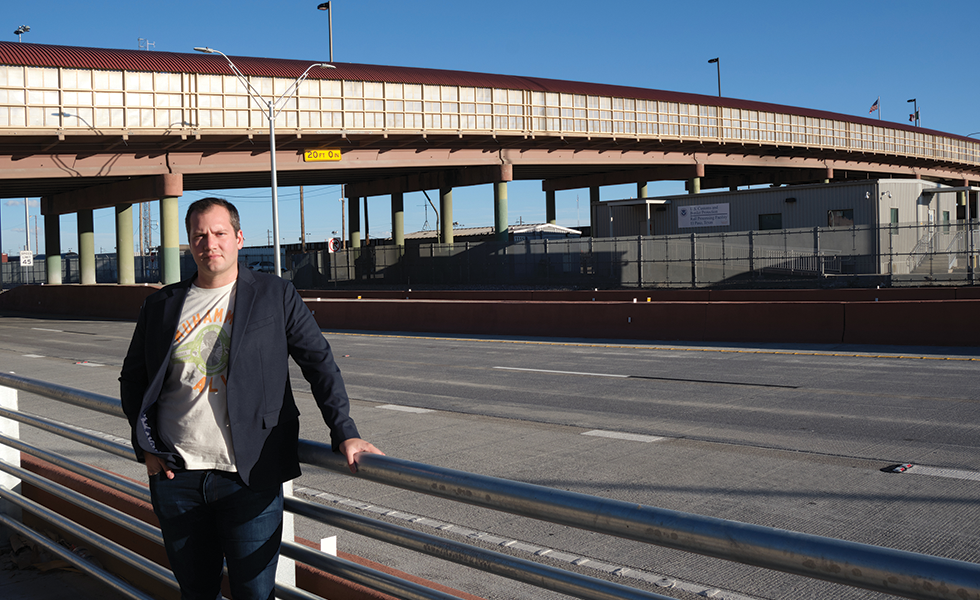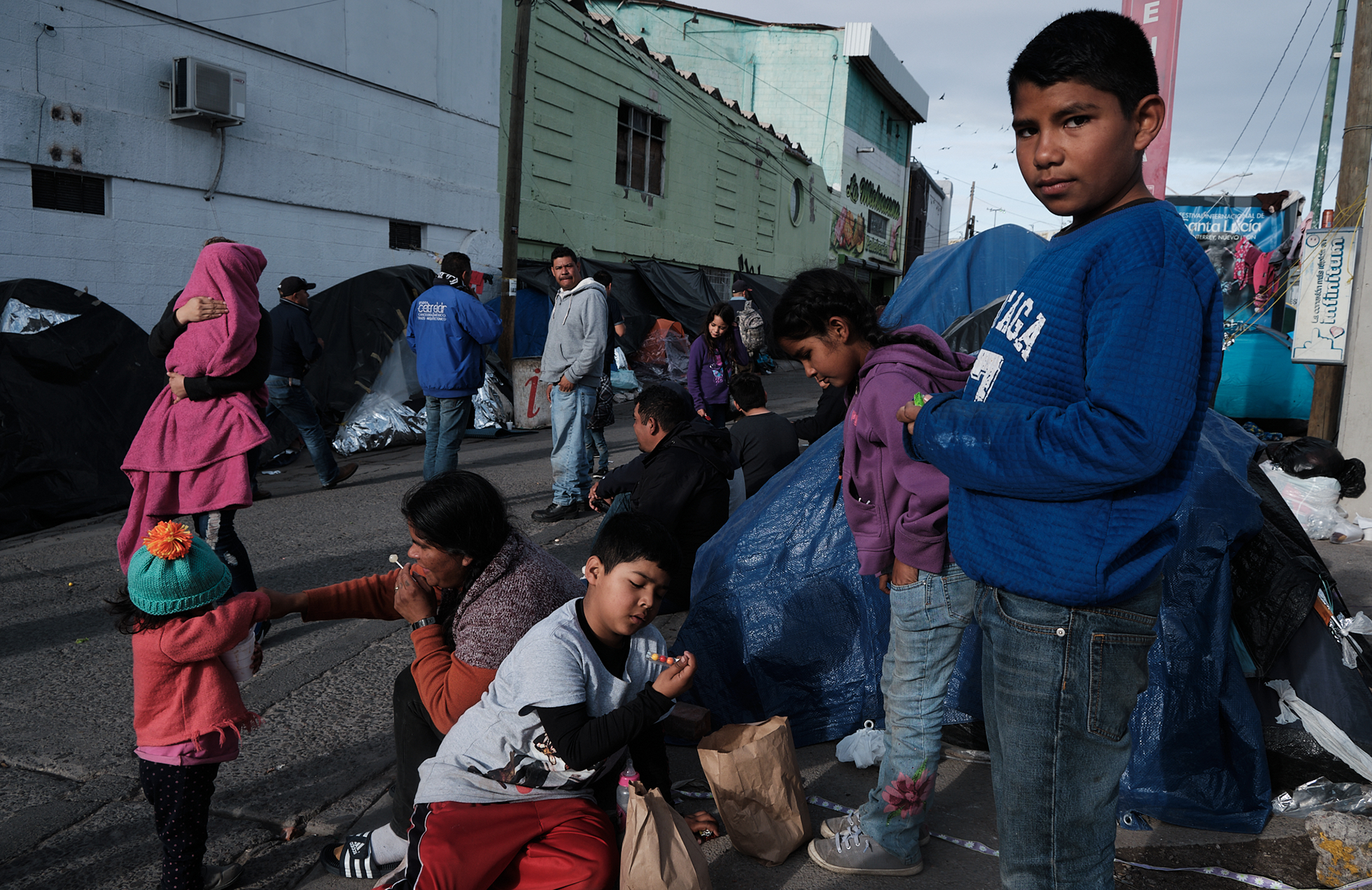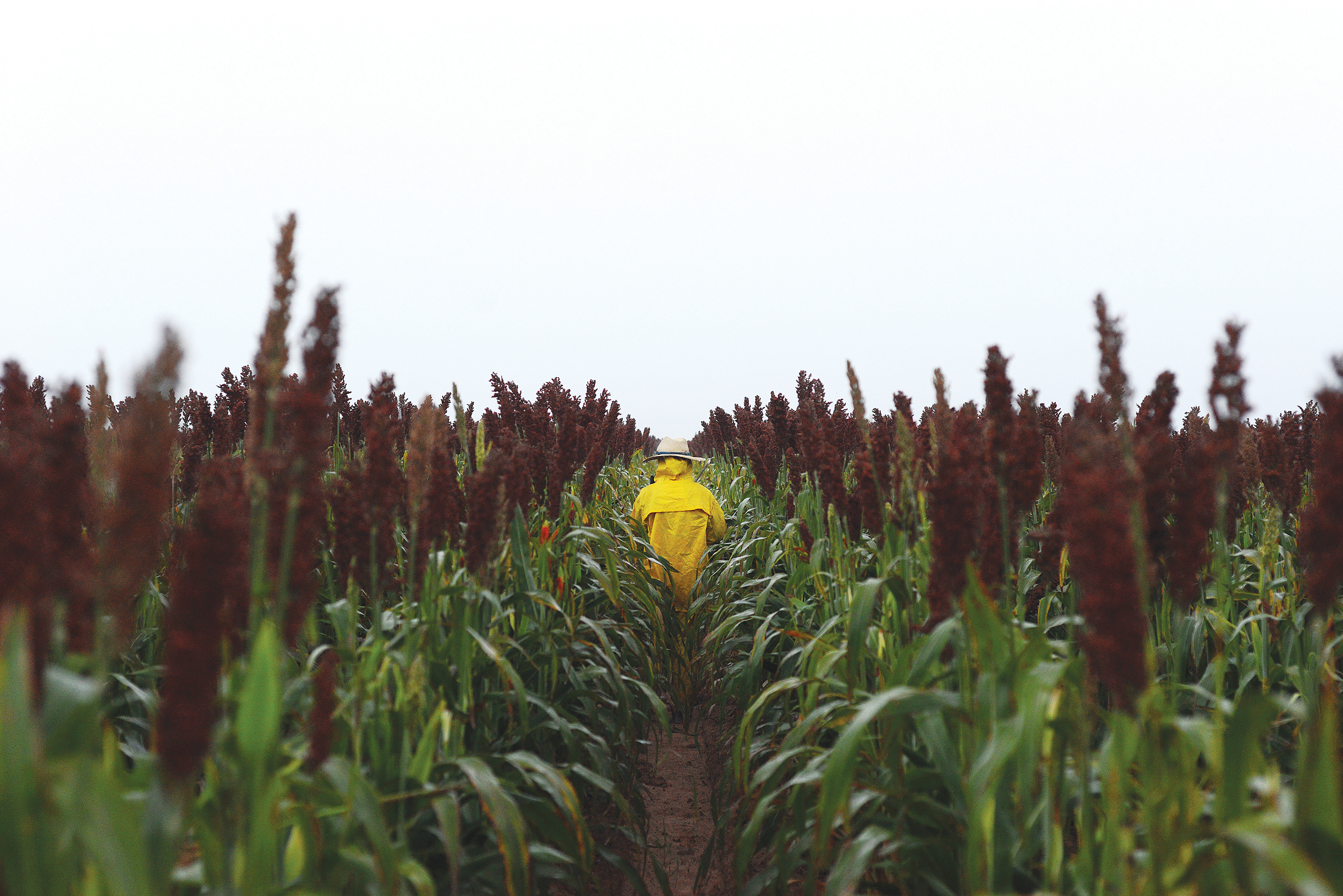

Labor trafficking hides in plain sight across Texas, disproportionately affecting the thousands of farmworkers who visit the state on H-2A guest worker visas.
–
Story and photos by Dana Ullman
July 1, 2019
In 2004, Javier traveled from Coahuila, Mexico, to Texas, where he worked hauling grains and cotton as a seasonal farmworker on an H-2A visa. Javier, who requested his last name not be used, endured significant hardship during his time as a farmworker. There were the miserable trailers he lived in across three states, at times without water, electricity or toilets; the physical and verbal abuse; and wages of less than $6 an hour after his employer forced him to pay for visa and transportation costs from his paycheck, in violation of his contract. When he injured his head while emptying hoppers at a South Plains cotton gin, rendering him unable to work, Javier told his boss he needed medical attention. “He said there was nothing he could do for me and that I had to work,” Javier told the Observer.
In pain and growing despondent, Javier said he wanted to leave. His boss demanded his passport and grabbed him by the throat when he refused, according to a complaint filed in federal court. “My sorrow was big … no one wanted to help me,” Javier said. He hitchhiked to Lubbock and eventually made his way to the Texas Workforce Commission office in Del Rio. He found a lawyer who helped him file a federal civil trafficking case, later settled out of court. “I wanted to complain to someone about what had happened to me,” Javier said. “So … other workers wouldn’t go through what I did.”

Javier’s case is an example of how forced agricultural labor hides in plain sight across the United States. Exploitative working conditions alone do not constitute labor trafficking; forcing a person to work against their will does. Most victims aren’t smuggled through “wide-open areas between our ports of entry,” as President Trump has suggested, or via semitrucks. They arrive legally through ports of entry, many on temporary work visas.
Sex trafficking is more frequently covered in the mainstream media, but research suggests that labor trafficking, which is more difficult to identify, may be more prevalent. In 2016, a University of Texas at Austin study estimated 234,000 Texans are victims of labor trafficking — with $600 million in stolen wages annually.
“He said there was nothing he could do for me and that I had to work.”
Labor trafficking happens across industries, but it’s especially common in agriculture. Polaris, a nonprofit that works to eradicate human trafficking, analyzed calls to its National Human Trafficking Hotline from 2015 to 2017 and found that more than 40 percent of labor trafficking cases were reported by foreign nationals working in agriculture on H-2A visas.
Annually, more than 200,000 farmworkers grow, harvest and pack the fruits, vegetables, grains and meat that make Texas the third-most-productive agricultural state in the nation. While roughly half of farmworkers are undocumented, they’re increasingly coming on H-2A guest worker visas — 4,278 workers were certified in Texas in 2018, a 37 percent increase over 2016, according to the U.S. Department of Labor.
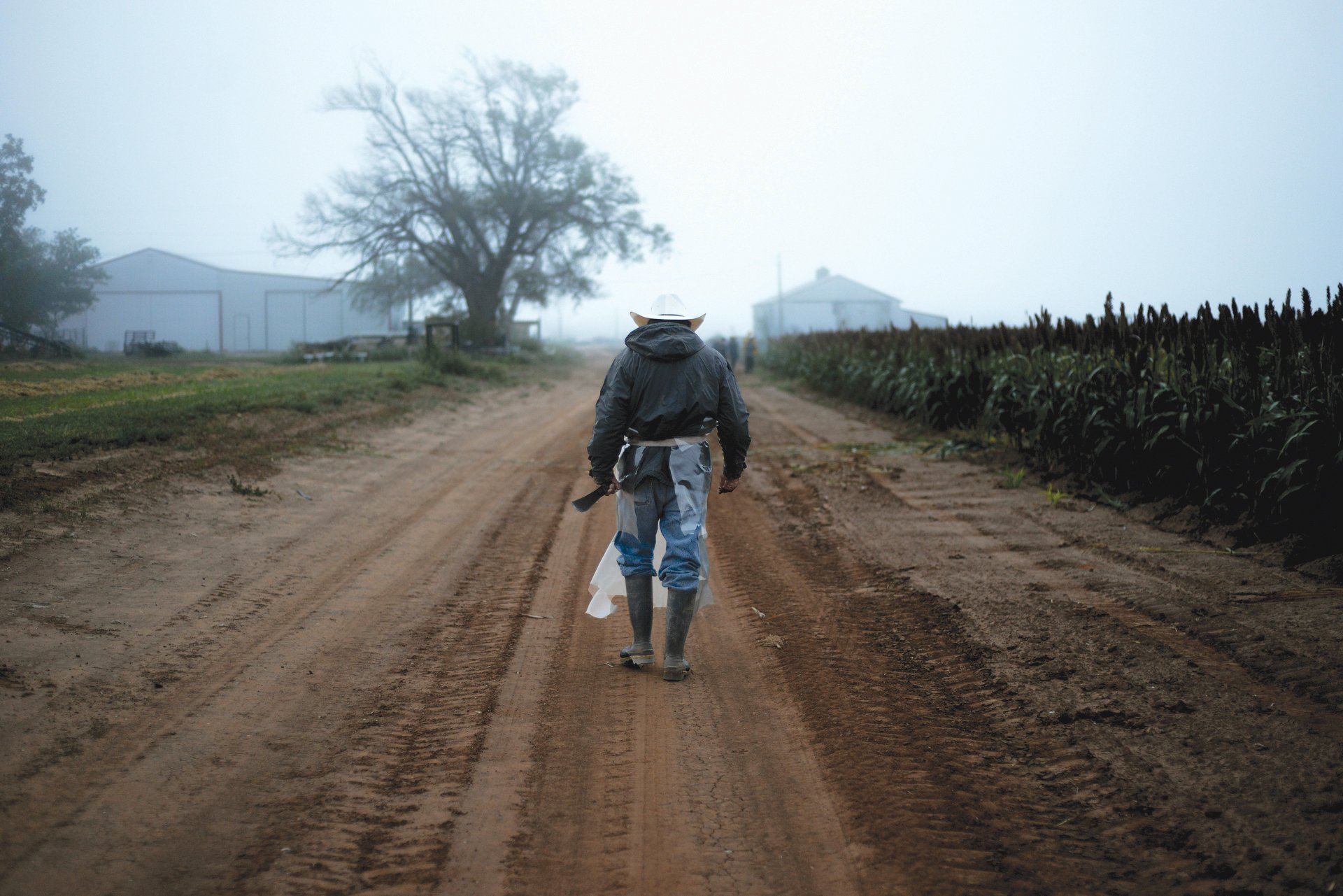
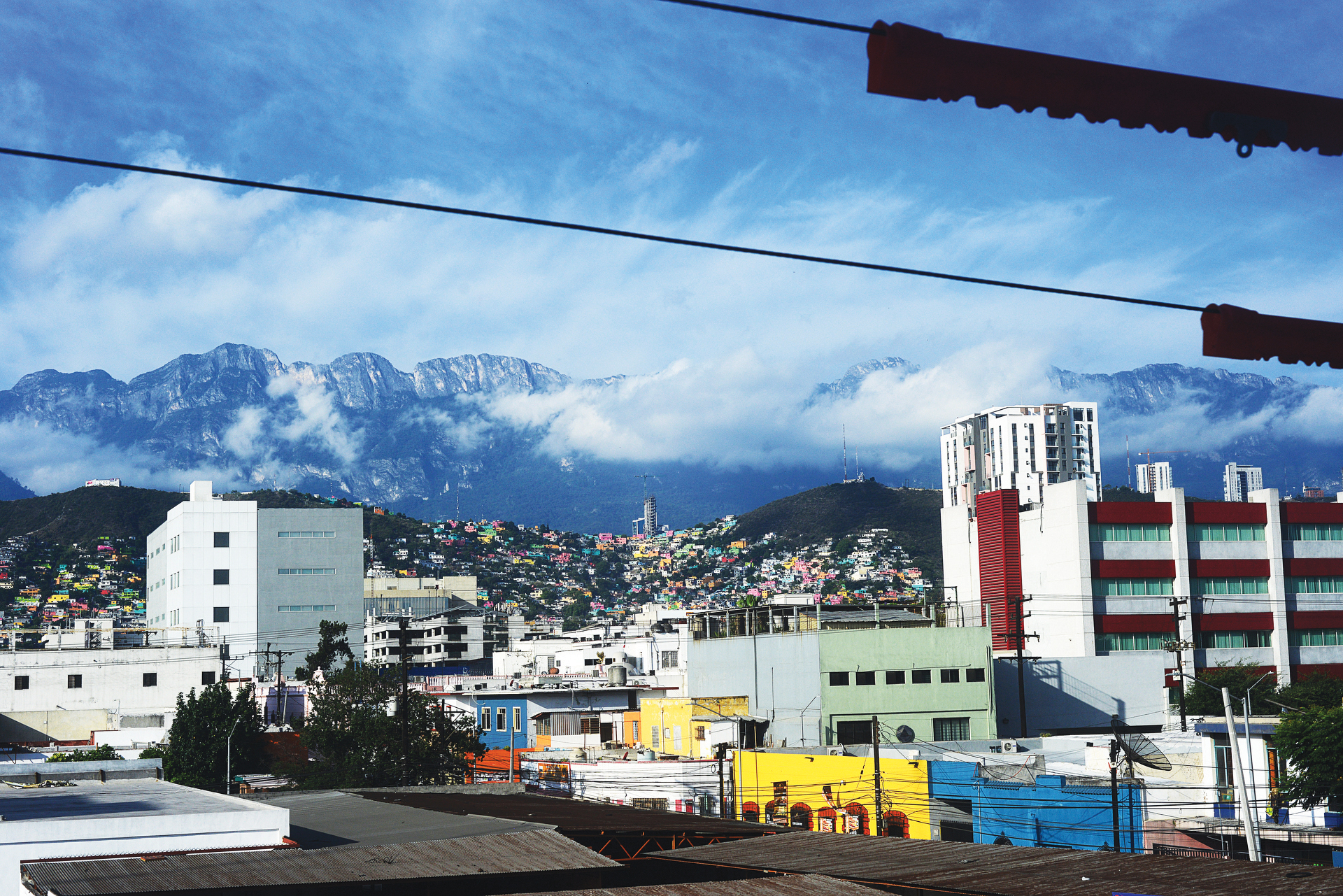
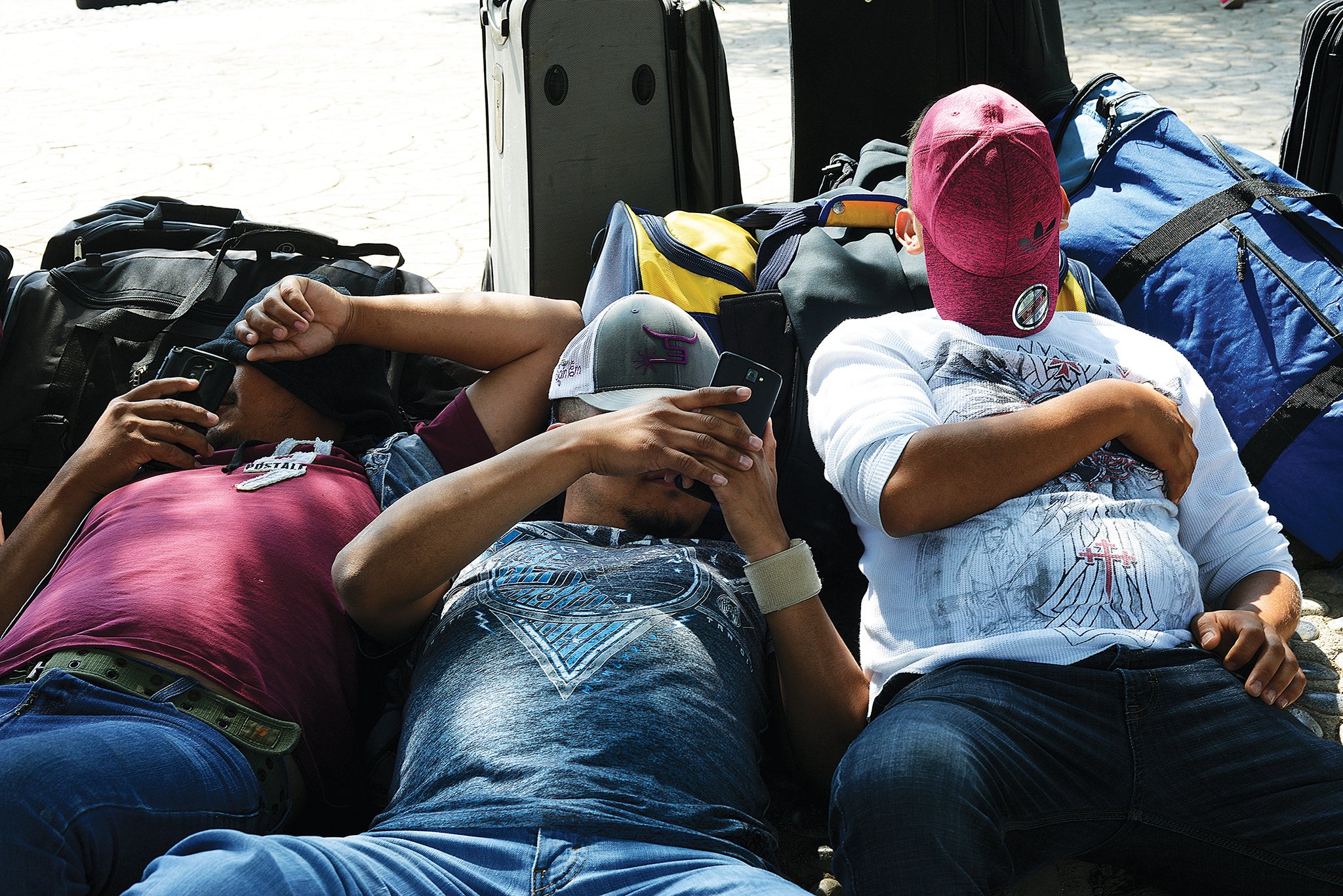
Because an H-2A visa is bound to one employer who controls housing and worksites, these farmworkers are uniquely at risk of being forced into labor by the very system that brings them here. Employers sometimes commit fraud by violating the program’s requirements; in other cases, traffickers charge workers illicit recruitment fees, leading to debt bondage. The threat of deportation is powerful, too: A guest worker who leaves an abusive employer violates the terms of their visa and is automatically deportable, so victims are unlikely to turn to law enforcement.
“There are so many ways to put a guest worker in a position where they don’t feel like they can leave,” says Stacie Jonas, managing attorney for Texas RioGrande Legal Aid’s human trafficking team. “Precisely because there’s no transferability, because they have documents that can be held, and because … they’ve really tried to comply with the law and they’re nervous about doing anything that would break rules that might make it difficult for them to get another visa again in the future.”

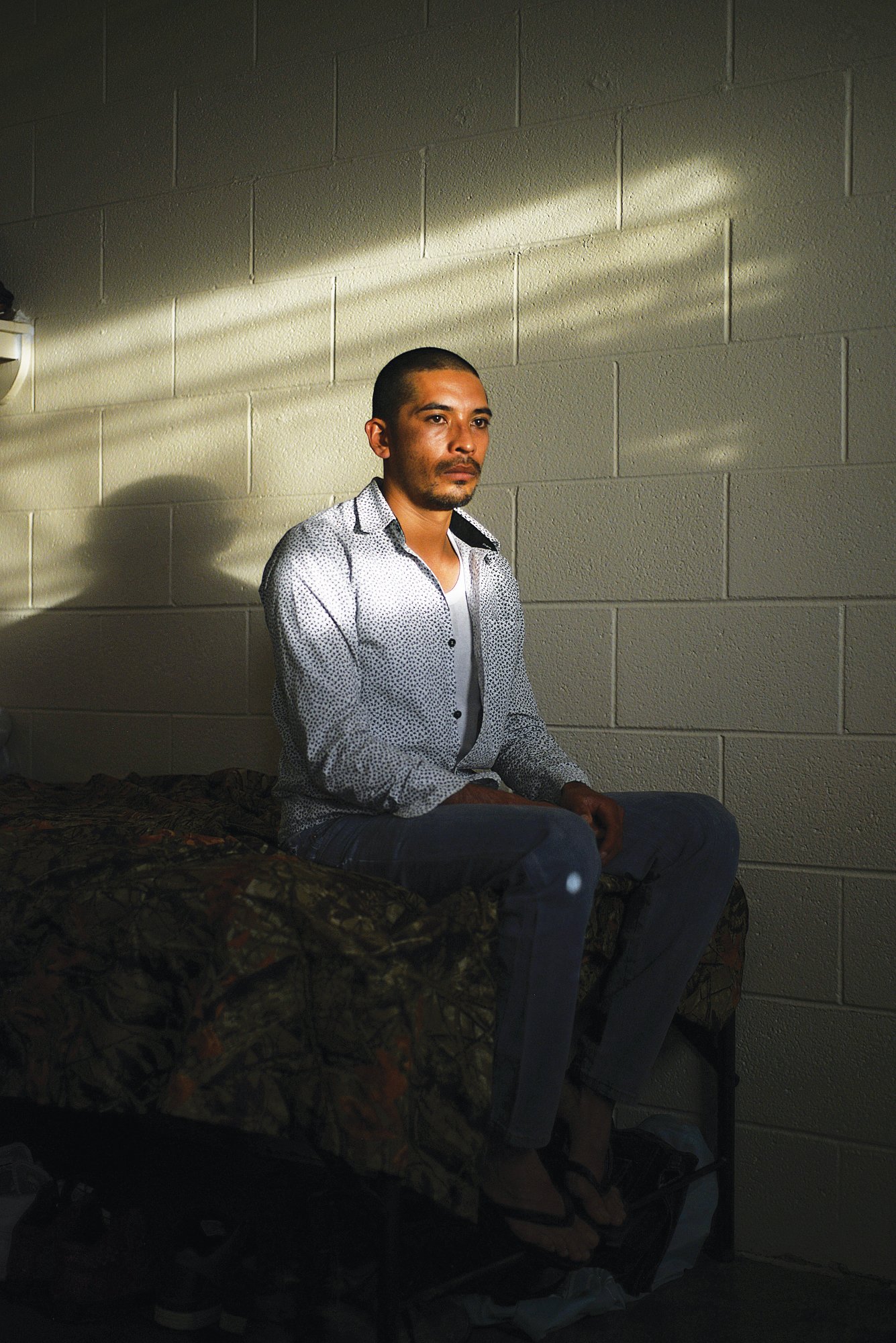
Labor trafficking cases are harder to prosecute than sex trafficking cases because prosecutors must prove a trafficker’s intent to force a person to work at an ostensibly legal job.
In 2018, the Buffett-McCain Institute Initiative to Combat Modern Slavery launched an anti-trafficking task force in the Texas Panhandle and the Rio Grande Valley to identify, investigate and prosecute cases of forced labor in agriculture — the first of its kind in the nation.
Brandi Reed is the task force supervisor and director of education for Amarillo’s Family Support Services, the only services provider for victims of human trafficking in the Panhandle. “Inevitably we need people to come here and work our farmlands,” she said. “We need them as much as they need us.”
“There are so many ways to put a guest worker in a position where they don’t feel like they can leave.”
Adequate oversight from state and federal agencies in charge of the H-2A program “would solve a lot of these issues,” Reed says, but “there’s no services to address labor trafficking at all in our area.” Until now, that is.
The task force coordinates monthly farmworker outreach, trains law enforcement to identify labor trafficking and is hiring a prosecutor to litigate cases. When working with trafficking victims, Reed says, the task force has “to change what justice really feels like for them. It’s about that empowerment for the victim, to feel like they have a family of resources, to feel like someone is there to take care of their needs.”
Javier wishes he had known where to seek help. “First of all, they invite you to work. They tell you how much you’re going to earn per hour or day, [but] they never told us about our rights or the help we could get in case of emergency or illness. To this day, I still struggle with my neck.” His former employer is still certified for the H-2A program.
![After a long day in the fields, Juan gives his colleague a haircut in the dwindling daylight. "My wife does this [hairdressing] in Mexico, and I'm actually pretty good," he says. With no cars or connection to the local community, and most of their earnings sent home, the men depend on each other for support.](https://www.texasobserver.org/wp-content/uploads/2019/06/7forgotten_fields-mag-july2019.jpg)
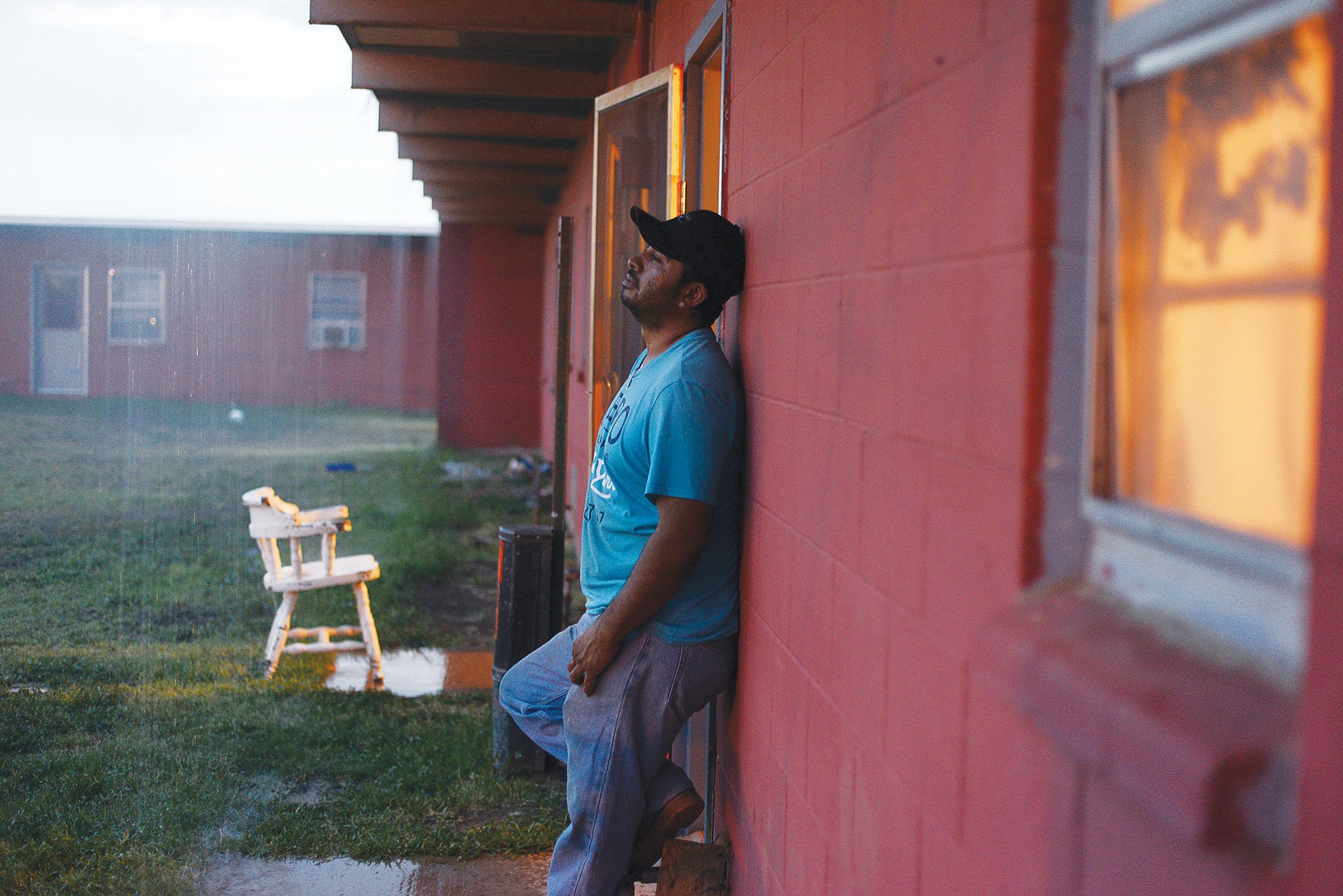
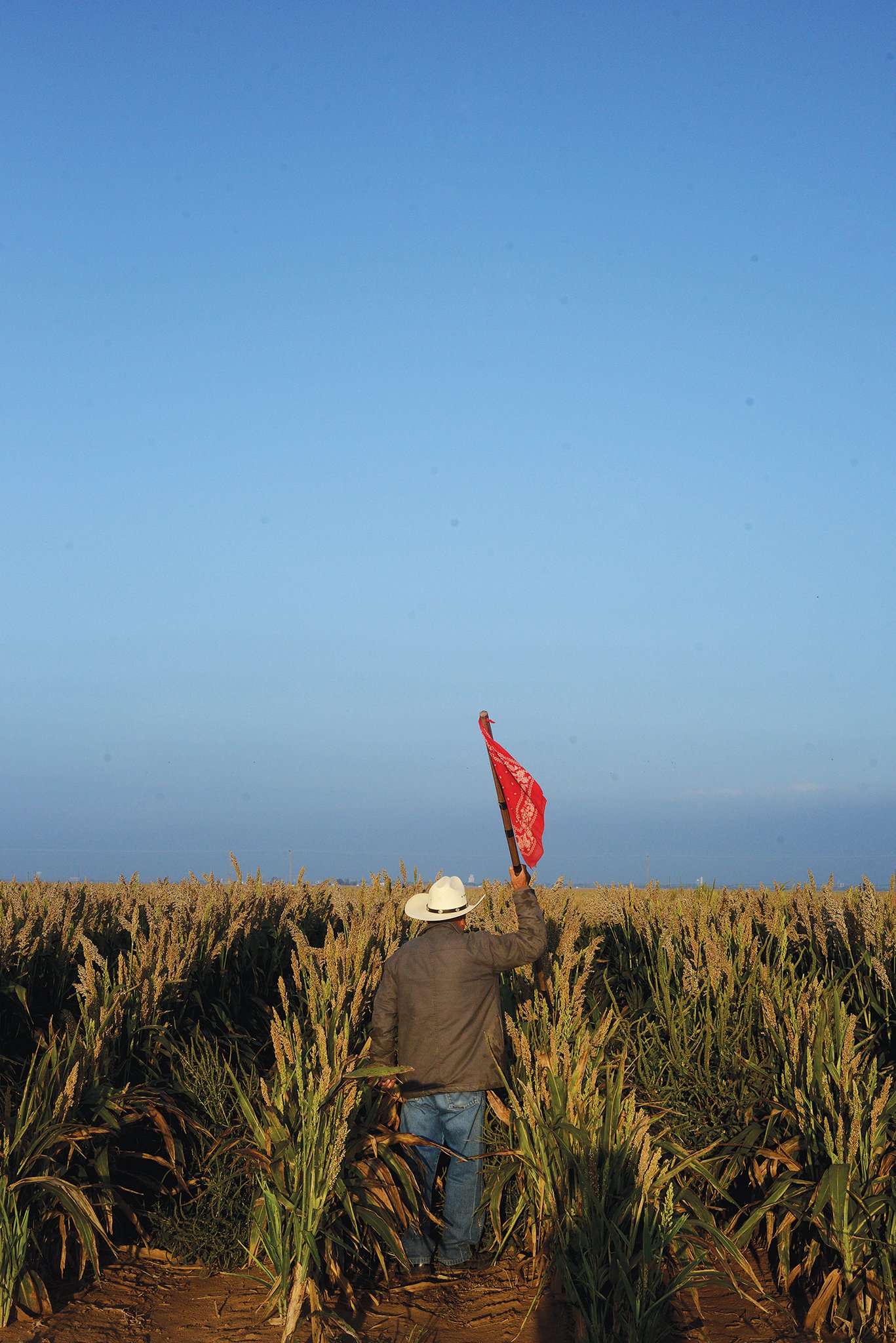
Top: A farmworker in Plainview.
This article was reported with support from the International Women’s Media Foundation.
